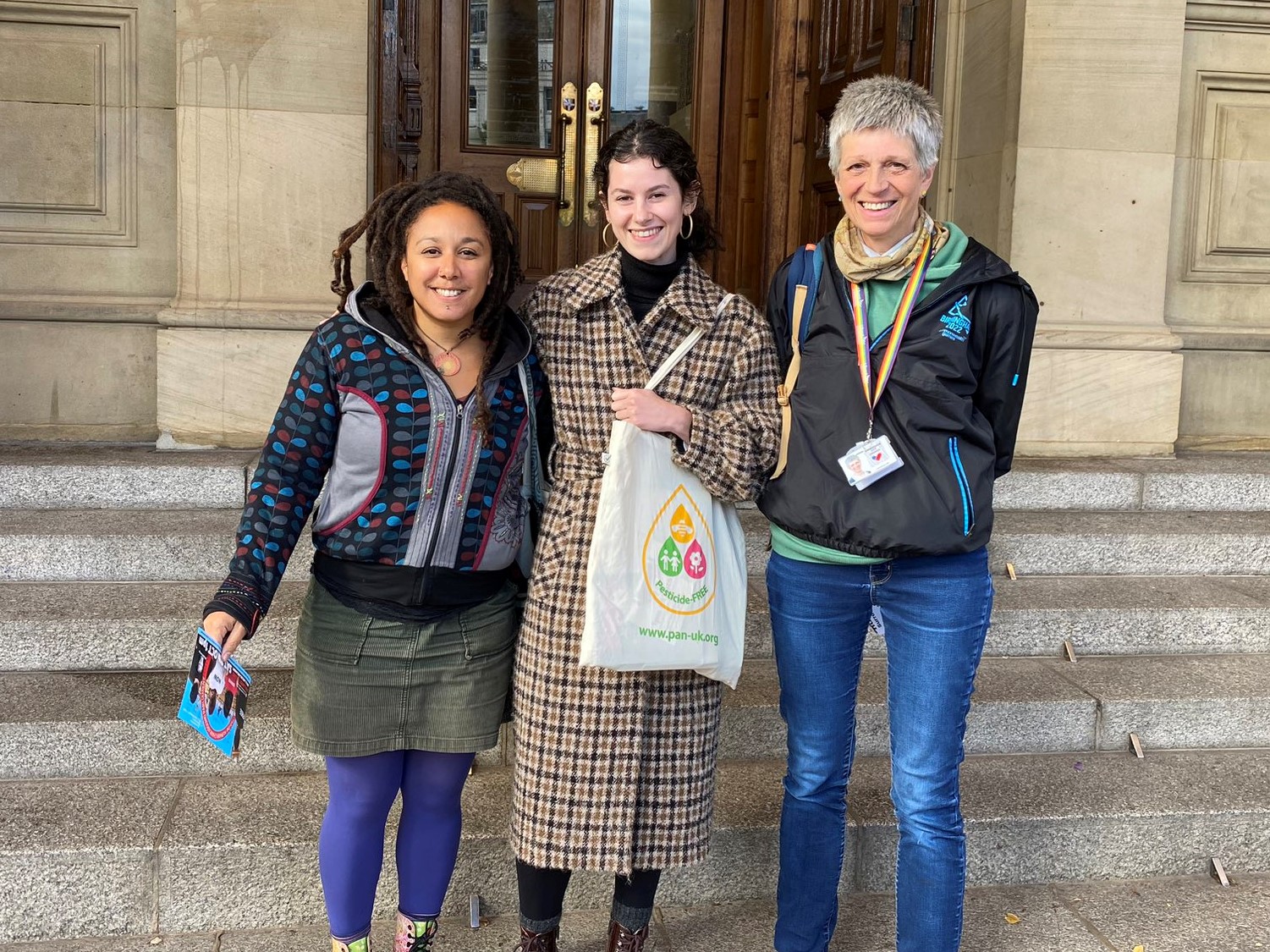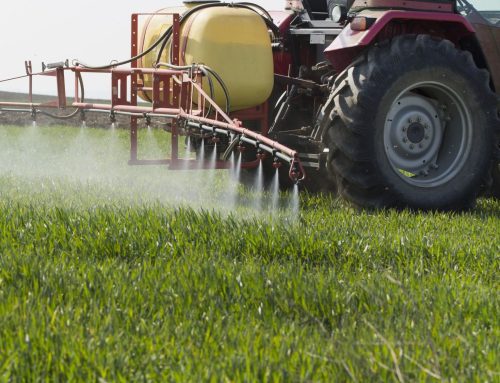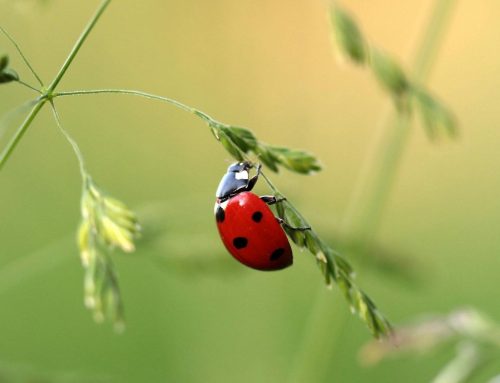“We stand here in gratitude and service to the 16,000 residents of the West Midlands and over 97,000 of the global community who signed our petition, calling on this council to ban pesticides in our city.
Since starting our Bee Friendly Brum campaign, we have been contacted by local media, spoken on the radio, allotment holders, community growing groups, concerned parents, dog walkers, park users, asking “why – despite mounting evidence of their harm on humans, animals, and the natural world – do the council continue to spray pesticides?”
We have been sent photos of the now ubiquitous ugly brown rings around tress and children’s play area where the ground has been sprayed, killing all plant life below.
We recognize and welcome the positive steps the council have taken in working towards making Birmingham a cleaner and greener city – such as the move to pelargonic acid to replace glyphosate on many of our city pavements. Or the reduction in grass cutting from 14 cuts a year to 10.
However, in the face of an ecological emergency, these changes need to be more bold* and happen more quickly.
The council can also be praised for its on-going city of nature work, and ambitions to align their operations with the Birmingham and Black Country Wildlife Trust Strategy (BBWT) ‘Working for Nature’s Recovery’ strategy. Let us remember that the Wildlife trusts own report titled, “Reversing the decline of insects”, which states:
“If all our towns and cities made a commitment to go pesticide free and create more space for nature, and if we all took action to create more homes for insects, our urban areas could soon become not just places for people, but places where people and nature live happily and healthily alongside one another. Imagine cities free from pesticides, where green leaves and flowers are visible in all directions, where the air is clean, residents can grow food and children can grow up surrounded by the familiar buzzing of bumblebees, and where they could learn the names of birds and wildflowers.”
This is the future I want for Birmingham. I love this city. I was born and bred here and now raise my children here. I feel a duty to try and make it a better place to live. To be a good ancestor.
The council has been spraying weed killer of one type or another since the 70s, my whole lifetime! I have no doubt that at the time it seemed like the right thing to do to reduce weeds and keep the streets neat and tidy. But this time has passed.
I’m sure many of you have noticed the decline in insect life yourselves. The abundance of bees, butterflies, dragonflies, ladybirds, grasshoppers and other beautiful creatures that would delight and inspire us as children… gone.
We should welcome the opportunity to increase habitats for wildlife, by reducing mowing and leaving some local areas untouched for nature. This would also assist in our response to climate change: did you know that if grass is kept just a little longer, it can keep the ground cooler during a hotter spell? Surely approaches like this are a no-brainer when we move to addressing and dealing with the changes that the climate crisis throw our way.
We have a moment here. ‘Biophilic city.’ ‘City of nature.’ ‘The green revolution.’ Let’s bring these ambitions to life through our actions today, listen to the voices of your citizens and be a truly bold Birmingham*. Commit to a full pesticide phase out plan, now.”






